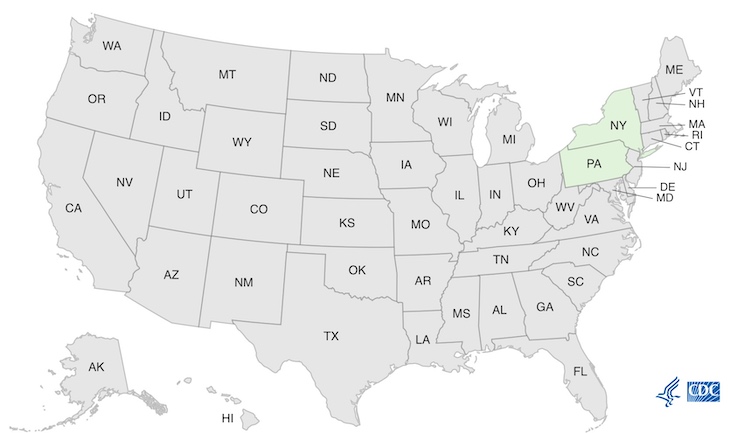Soft Serve on the Go ice cream cups are linked to a Listeria monocytogenes outbreak that has sickened two people, according to the Centers for Disease Control and Prevention (CDC). The ice cream cups and sorbet have been recalled by the company, Real Kosher Ice Cream.

The patients live in Pennsylvania and New York. Patient isolates were collect in May and June 2023. Both people were hospitalized. The median age is 77, and one person is female and the other male.
One patient bought Soft Serve on the Go ice cream cups from a grocery store. The other likely ate the same ice cream cup at a long term care facility.
Investigators are using the PulseNet system to try to find others who may be part of this outbreak. Whole genome sequencing conducted on the patient isolates showed that the pathogens that made them sick are closely related genetically. That means they likely got sick from eating the same food.
The Pennsylvania Department of Agriculture found Listeria monocytogenes in an unopened Soft Serve on the Go vanilla chocolate ice cream cup that one of the patients had in their freezer. The ice cream tested was purchased after they got sick, but the person bought and ate the same brand and flavor several times before they got sick. Whole genome sequencing is being conducted on the ice cream sample to see if it is the outbreak strain.

Real Kosher Ice Cream recalled all favors of Soft Serve on the Go ice cream cups on August 9, 2023. These items were sold nationwide at grocery stores, convenience sores, and canteens. They were also distributed by the company to long term care facilities, nursing homes, schools, and camps, and were distributed internationally to these countries: Belgium, Brazil, Canada, Mexico, and the United Kingdom.
Do not eat these cups, do not sell them, and do not serve them to others. If you have the symptoms of Listeria monocytogenes, and are pregnant, elderly, or have chronic health conditions, call your healthcare provider right away. Those groups are at higher risk for serious complications from this infection. Symptoms usually start within two weeks, but may not start until 70 days after infection.

If you have been sickened with a food poisoning infection, please contact our experienced attorneys for help with a possible lawsuit at 1-888-377-8900 or text us at 612-261-0856. Our firm represents clients in lawsuits against grocery stores, restaurants, and food processors.




